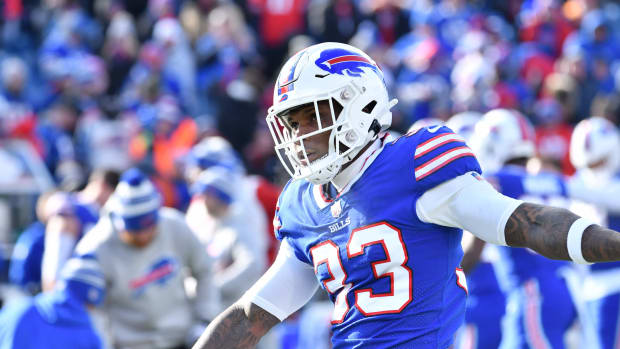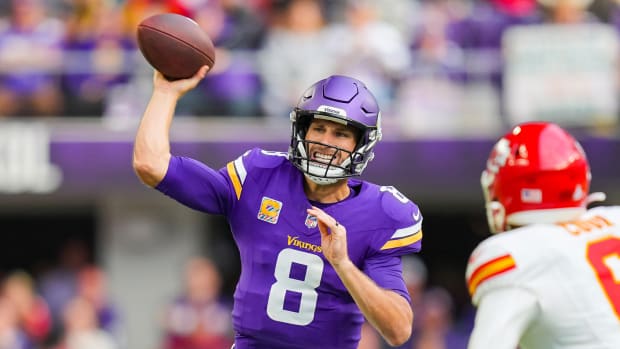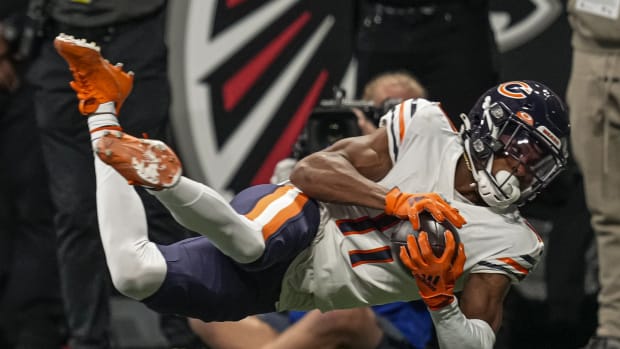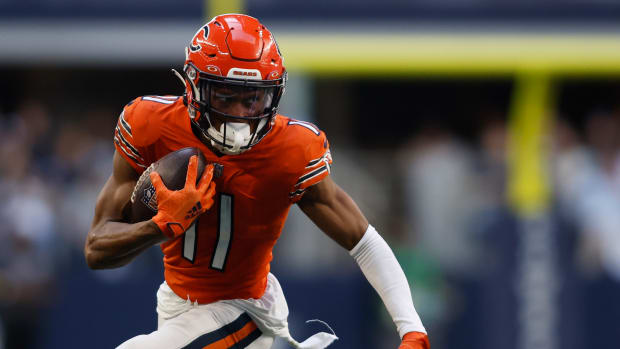What we can all learn from Takk McKinley's social media hiatus
Takkarist McKinley has gone off the grid.
After he announced the Atlanta Falcons declined the defensive end's fifth-year option, he deactivated his Twitter and Instagram accounts.
McKinley's announcement brought a wide-range of emotion from the Falcons' fanbase. Some fans showed support and told McKinley to use the decision as motivation to play harder and earn a contract extension. Other fans took the moment to criticize the fourth-year pro's performance since being drafted in 2017.
In the midst of all of the noise, good and bad, McKinley decided to take a step away from the limelight.
Until NASCAR returns later this month, the closest thing to non-video game, live-sport action America has is "The Last Dance" documentary featuring Michael Jordan and the 1998 Chicago Bulls. This past Sunday on episodes five and six, Jordan detailed the reality of his life being Michael Jordan. A camera crew entered his hotel room, and he told the crew, while lying on a couch, the spotlight is on him as soon as he walks out of his room. Everyone always wants something, whether it be an autograph, a picture, an interview or money. After the episodes aired, Charles Barkley came on the post-documentary "SportsCenter" said Jordan is one of only two athletes he's ever met who can make people cry when they meet him. The other is Tiger Woods.
The pressures of being a professional athlete in the age of social media can be exhausting, especially for an athlete as active as McKinley. Falcons superstars Matt Ryan and Julio Jones aren't active on Twitter and Instagram as many other stars in the league. Juju Smith Schuster, Pat McAfee, Odell Beckham, Jr., Michael Thomas and even Tom Brady have built their brands on social media. There's high-reward to the active users who humanize themselves enough to relate to the general public. With high-reward comes high-risk, though, as active users subject themselves to hundreds of hate comments a day.
The phrase "it takes a special type of person" often comes up when bringing up professional athletes or other celebrities. The truth is, there is not a single human who can prepare for the life of constantly viewing hate messages. It can only pest your mind for so long. As Tuesday marks the 55th day since the NBA put its season on pause, most of the country has had to practice social isolation at one point or another. Often times, sports are an outlet for people to distract themselves from the trauma of reading hate messages or whatever obstacles they're facing in life. With sports taken away, people who have distracted themselves the not-so-glamorous parts of life have to sit and live with them now.
That's why McKinley's move to leave social media was probably the best move. As passionate as the man who brought a blow up photo of his late grandmother with him on the draft stage, and trash-talked fans on the timeline abbout the Golden State Warriors in June, seeing hundreds of negative comments every day when he can't play football to relieve the stress probably isn't the best way to spend his time.
Come to think of it, maybe we can all learn something from McKinley in this very moment.




